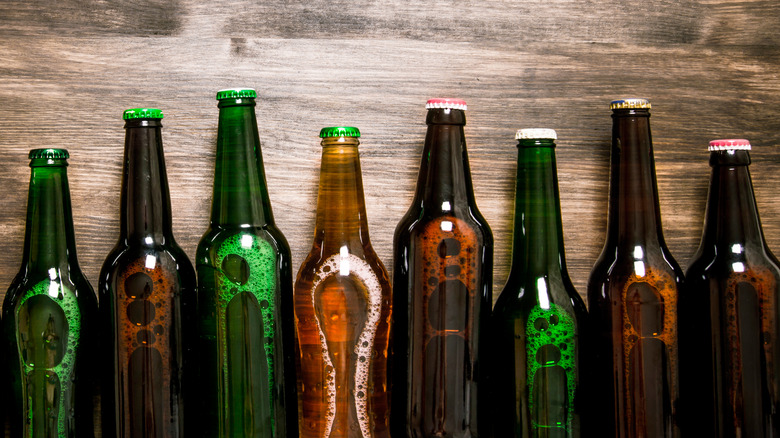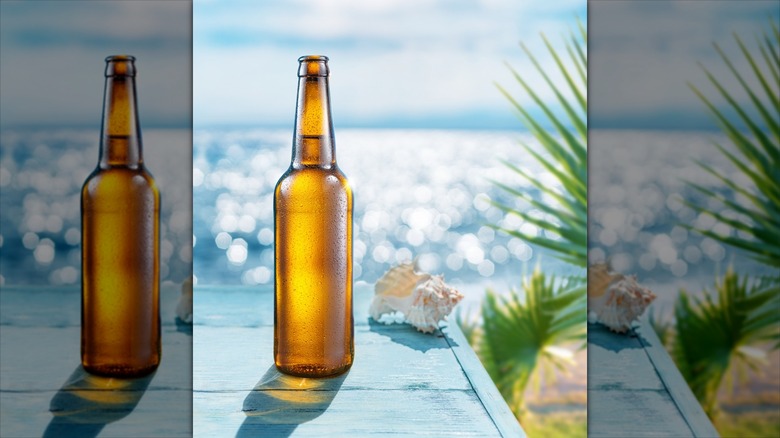The Real Reason Beer Comes In Brown Bottles
The World History encyclopedia concludes that people have likely been brewing beer for about 10,000 years. Beer brewing developed in China around 7000 BCE and made its way to Mesopotamia and Godin Tepe (Iran) by 3500 BCE, and later to Egypt, Greece, and Rome. Roman legions carried the technique across the totality of the Roman Empire in Europe and the Mediterranean regions of North Africa. The Greeks and Romans preferred wine, but the barbarians, many of whom were German, started crafting beer and storing it in heavy earthen jugs around 800 BCE. Soon, breweries were scattered across the Germanic regions. The Germanic people perfected brewing and established the beer styles known across the world today.
According to the Brewers Association, the beer market in the United States was worth over $100 billion in 2021. Beer is produced in towns and cities in every state in the country and each producer takes their beer seriously.
Renegade Brewing indicates that beer is delicate and will spoil because of three factors: exposure to oxygen, bacteria, and light. Most beer is pasteurized, which eliminates certain bacteria growth. Alcohol is also a microbial, killing bacteria and yeast found in beer. Exposure to oxygen will alter the aroma profile of beer, causing a buttery taste due to a chemical called diacetyl, which can have negative health implications.
Proper seals on kegs, jugs, bottles, and cans all but eliminate oxidation caused by unintended exposure to oxygen. But the bottle itself is also important.
Light can taint the way beer tastes and smells
CNN reports that exposing beer to ultraviolet light sunlight causes a chemical reaction in beer that results in an unintended aroma and taste. The funky, stinky flavor is actually called "skunking." Speaking to Chuck Skypeck, the technical brewing projects director at the Brewers Association, CNN revealed that the cause of skunking was discovered in the 1960s. When hops are exposed to an intense light, it undergoes a photooxidation reaction and develops a molecular compound called 3-methyl-2-butene-1-thiol. That new chemical is the culprit that creates the unappealing skunky aromatics in beer.
What can brewers do to prevent the skunkification of their brews? Beer Chronicle suggests that while cans and kegs are sure bets in preventing skunking, not all beer bottles are. When it comes to protecting beer from skunking, the darker the glass the better. Brewers are opting for dark brown and black bottles because clear bottles and traditional blue and green bottles used by some brewers don't provide enough protection from ultraviolet light. That's why brown beer bottles are dominating the market.
Renegade Brewing suggests that when beer is properly pasteurized, packaged, and stored, unopened beer cans and bottles can last for six to 12 months and specialty craft beer can last as long as 10 years. Remember that beer is food and like all other food, it is going to lose its vibrancy and become stale over time. The best advice? Drink up.

